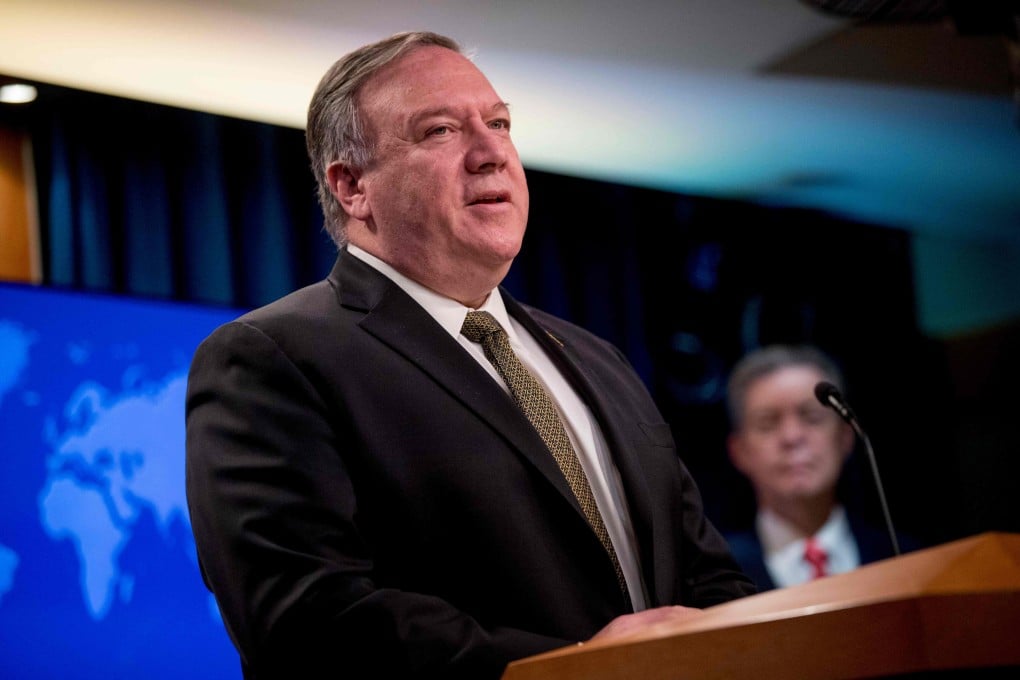China’s ‘repression against all religions continues to intensify’, US Secretary of State Mike Pompeo says as report devotes section to Xinjiang’s Uygurs
- The US State Department released a blistering assessment of China’s treatment of groups in a report on religious freedom
- This year’s paper marked the second time the report has devoted a stand-alone section on Xinjiang

The state of religious freedom in China has further deteriorated over the past year, US Secretary of State Mike Pompeo said on Wednesday, as his department unveiled a blistering assessment of the country’s treatment of religious groups.
China’s “state-sponsored repression against all religions continues to intensify”, Pompeo told reporters at the release of the “2019 International Religious Freedom Report”.
“The mass detentions of Uygurs in [the Xinjiang Uygur autonomous region] continues, so does the repression of Tibetan Buddhists and Falun Gong and Christians,” said Pompeo, accusing the Chinese Communist Party (CCP) of seeking to “infuse communist dogma” into faith groups’ teachings.

01:45
Indonesian and Malaysian Muslims protest in support of Uygurs in China
In 2019 the Chinese government had “tortured, physically abused, arrested, detained, sentenced to prison, subjected to forced indoctrination in CCP ideology, or harassed adherents of both registered and unregistered religious groups for activities related to their religious beliefs and practices,” said the report, which devoted some 45,000 words to the situation in China.